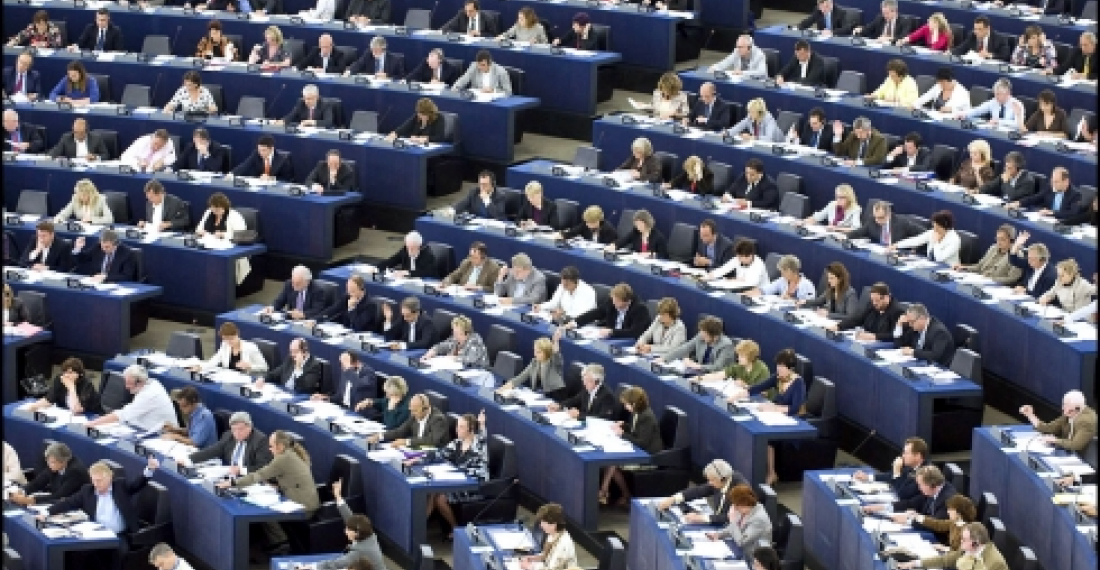В целом реакция на две резолюции, принятые в среду о будущем отношений между Европейским парламентом и Арменией и Азербайджаном, была позитивной. Резолюция подчеркивает недвусмысленными терминами необходимое условие в области прав человека и демократических реформ. Резолюция также объединяет дальнейший прогресс в этих отношениях с прогрессом в урегулировании нагорно-карабахского конфликта.
В четверг официальный представитель МИД Азербайджана, Эльман Абдуллаев, прокомментировал резолюцию, как "достижение нашей дипломатии". По словам Абдуллаева, резолюций являются "исторически важным документом для Азербайджана", поскольку они отражают мнение международного сообщества о том, что Армения должна прекратить оккупацию азербайджанских территорий.
Активисты из оппозиции в Азербайджане также приветствовали резолюций в своих сообщениях в блогах и на facebook в последние сорок восемь часов. В частности, они приветствовали акцент на права человека и демократические реформы в этих резолюциях.
В Брюсселе армянская группа лоббирования, Европейские друзья Армении, в пресс-релизе заявили, что они "приветствуют то, что в резолюциях Европарламента преобладают основные ценности Восточного партнерства, и особенно отношение к процессу демократизации и сбалансированный подход к урегулированию нагорно-карабахского конфликта. Доклад благоприятен для Армении, но и напоминает, что остались необходимые для выполнения условия." Генеральный секретарь EuFoA Д-р Майкл Камбэк добавил, что "Доклад благоприятен для Армениии и также содержит некоторые новые положительные стороны для Армении. Европарламент четко признает, что Армения стала "более европейской” и призывает к большей помощи со стороны ЕС в процессе евроинтеграции республики".
В общем комментарии, глава делегации Европейского союза в Азербайджане, посол Роланд Кобиа заявил, что у ЕС "позитивный подход к Азербайджану, но Азербайджан должен ответить тем же", сообщает АПА.
Политический редактор Commonspace.eu в своем комментарии пишет, что "две резолюции обозначили параметры, при которых ЕС будет вести переговоры с Арменией и Азербайджаном, и не оставили никаких сомнений в том, что права человека и демократические реформы, это те ценности, которые должны быть ведомыми в процессе переговоров, и что это связь между прогрессом в разрешении нагорно-карабахского конфликта и дальнейшего сотрудничества с этими двумя странами. Институты ЕС обязаны руководствоваться этими принципами. И Армения, и Азербайджан имеют причины быть довольными резолюцией по разным причинам, но сейчас важно, чтобы они смотрели на них в их совокупности, а не выборочно. Это важный и волнительный момент в отношениях между ЕС и Южным Кавказом, и все стороны должны развить этот импульс в конкретные действия."
С полным текстом резолюции Европарламента по Азербайджану на английском языке можно ознакомиться здесь
С полным текстом резолюции Европарламента по Армении можно ознакомиться здесь
Источник: commonspace.eu по материалам АПА, EuForA и пресс-службы Европейского парламента
Commentary
Положительная реакция на резолюцию Европейского Парламента поступила и из Армении, и из Азербайджана.РЕАКЦИЯ НА РЕЗ







